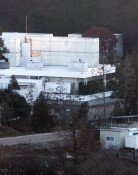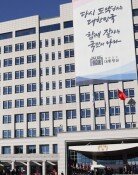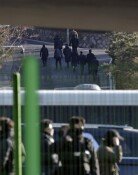S. Korea-Japan Festival shows signs of hope
S. Korea-Japan Festival shows signs of hope
Posted September. 30, 2019 07:57,
Updated September. 30, 2019 08:29
The 11th South Korea-Japan Festival was held on Saturday and Sunday in the Hibiya Park in Tokyo. The festival, which began in 2005 to mark the 40th anniversary of establishing bilateral diplomatic ties, has been held annually since 2009 based on the agreement between the foreign ministers of the two countries. It holds significance that the private event to promote friendship between the two countries was held in Tokyo in accordance with its original schedule, following the South Korea-Japan Economic Association meeting held on Tuesday and Wednesday in Seoul, despite the bilateral relations being in the worst state since the establishment of the diplomatic ties.
It was skeptical whether this year’s South Korea-Japan Festival can be held normally due to the uncomfortable bilateral relations. However, culture and arts groups of the two countries, including “Heart to Heart,” a South Korea orchestra composed of the developmentally disabled, insisted on continuing the event emphasizing the importance of exchanges at difficult times like now. Thanks to their efforts, event booths for trying on Korean traditional clothes “hanbok” and making eco-bags with lettering in the Korean language had the waiting time of 80 to 90 minutes, making this year’s event even greater success than usual.
“South Korea benefited Japan by sharing its culture,” said Japanese Land and Transport Minister Kazuyoshi Akaba, who joined the Cabinet on September 11, during the opening speech for the festival. “Politicians should engage in conversation to promote better relations between the two countries,” he emphasized. “Private exchanges must continue even though political and diplomatic situations may be challenging,” said Takeo Kawamura, the secretary-general of the Japan-Korea Parliamentarians’ Union, after introducing his name and title in Korea as a friendly gesture.
It is also notable that Liberal Democratic Party Secretary-General Toshihiro Nikai said during a broadcast interview on Friday, “South Korea should make efforts for smoother diplomatic relations, but Japan should make the first gesture and make concessions, if necessary.” Such wishes by high-ranking political officials of the two countries should not stop at being political rhetoric and lead to practical conversations to improve bilateral relations. A long-term hostility between the neighboring countries, which have a high export dependency and are closely linked through division of labor, should be avoided for both countries’ citizens, especially in this challenging and unpredictable global economy.







